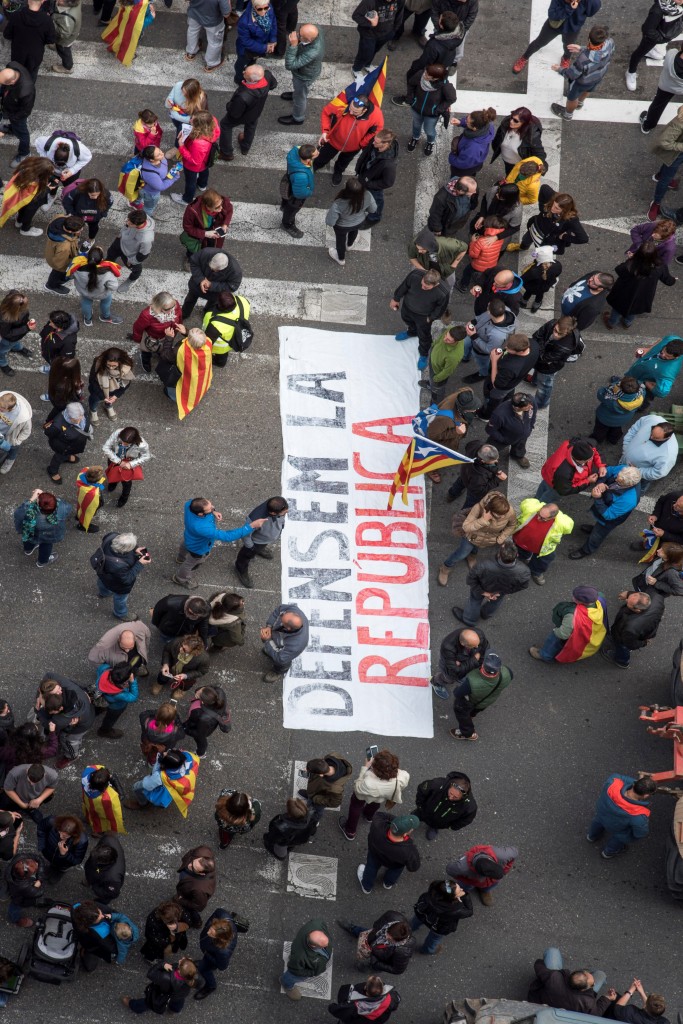Commentary
Catalans must prioritize social issues in these elections
In the media circus focused on the Catalan question, the fact has gone unnoticed that in Spain the majority is living worse than 10 years ago and has more insecurity about the future.

One cannot arrive at the result without considering the equation as a whole, and there are still many unknown variables in the complex equation of the Dec. 21 elections in Catalonia.
What is already known is that the elections have been ordered by the Rajoy government, and that it will be a no-holds-barred election campaign. There seems to be an intention by both the Spanish government and the Catalans (whether deposed, arrested or fugitive) to convince the potential voters that the choice is only between the supporters of the unilateral declaration of independence and the forces that decided to brutally suppress it, with Article 155 and the revival of nationalism.
It would not be surprising if starting now, both the separatist side and Rajoy’s camp start a campaign to cast a “useful vote,” aiming to show the electorate that it would be a waste of their vote to support those who propose a referendum agreed between all sides, which would be able to push Spain as a whole toward a constitutional process from which, finally, that multinational and republican Spain could arise, which the communists and socialists failed to establish with the ’78 constitution against the “People’s Alliance” back then.
Defeating this notion of a “useful vote” will not be easy. The actions of the PSOE, which has condemned the Catalan socialists of the PSC to irrelevance by voting for Article 155, are not helpful. Neither are the words of Sánchez, the Secretary-General of the Socialists, who — in the words of Pablo Iglesias — has become the ventriloquist who speaks with the voice of the most conservative members of his party.
The stark choice between separatism and support for the unity of Spain is also being stressed by pro-independence forces, and in particular by left-wing separatism, which considers the secession of Catalonia as a necessary and sufficient condition for initiating a republican and anti-capitalist transition, not only in Catalonia but throughout Spain. It would blow up the government of the Popular Party, which continues to push its economic triumphalism, lying about the average salary, which has in fact decreased for the first time since 2006, and it would unhinge a Spain and Europe that are too neoliberal.
This narrow set of alternatives makes possible some worst-case scenarios where the alliance between the PSOE, PP and Ciudadanos would again enact repression in case of a victory by the separatists, causing irreparable damage, and forgetting that political prisoners and democracy are incompatible terms.
In this polarized situation, Podemos responds with its radical democratic character, founded on the notion that choices should be made together with transparent mechanisms, since important decisions need care and respect for all parties, and finding a way out of the crisis must be a collective responsibility.
Accordingly, the more than 17,000 voters who make up the base of Podem, the Catalan Podemos, have spoken out about what to do for the upcoming December elections. For them, the only political path is still the platform of Zaragoza and the idea of a referendum agreed on by all sides, the only proposal on the table for getting out of this impasse. They have decided to confirm their alliance with mayor Ada Colau’s movement, on the CatComú-Podem list, headed by Domènech.
Their alliance aims to build, from the ground up, without wasting any more time and including everyone, a country that does not leave anyone behind and to return social issues, which have so far been overshadowed, to the center of the electoral debate.
Today, Catalonia has a third of its population living at risk of poverty and exclusion, as demonstrated by the substantial increase in the number of suicides and in the use of antidepressants. There is insecurity, unemployment, and spending cuts on education, health, and social services. In the media circus focused on the Catalan question, the fact has gone unnoticed that in Spain the majority is living worse than 10 years ago and has more insecurity about the future. An insecurity which is also fueled by the climate and environmental crisis, which, with its storms and terrifying heat waves that have brought fires and drought this summer, has affected its agriculture and its economy.
And it would have been absurd if the unilateral declaration of independence had been accepted by the national government and the new Catalan Constitution would have been written by none other than a great number of those who bear responsibility for this social situation. Puigdemont and center-right parties like his PDeCat are among those responsible for the social divide, because they enacted the European neoliberal prescriptions with the same determination as the PP government itself.
It is necessary to bring social priorities to the forefront of the Catalonian elections, to give consistency and representation to those segments of society that have lost their place on the political scene, to go a little beyond the simple choice between a Republican Catalonia and a monolithic Spain, to undermine the hegemony and corruption of the Right, and to establish a constitution that would truly give priority to social policies and the right to choose, and not to bailing out the banks.
Originally published at https://ilmanifesto.it/scegliere-le-priorita-sociali-nel-voto-in-catalogna/ on 2017-11-14
